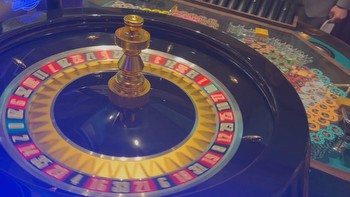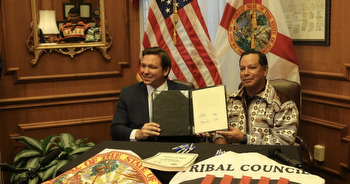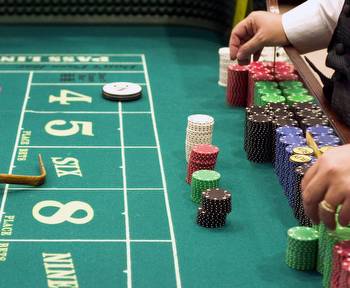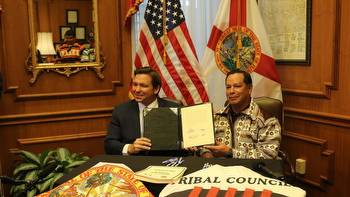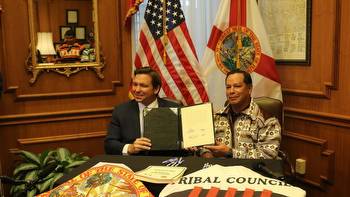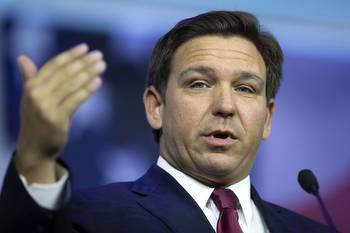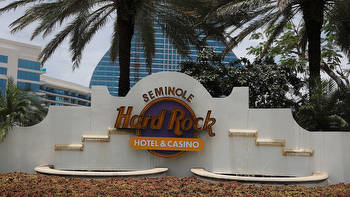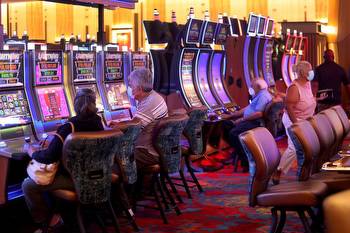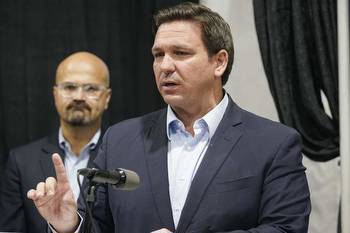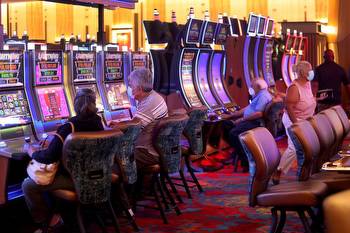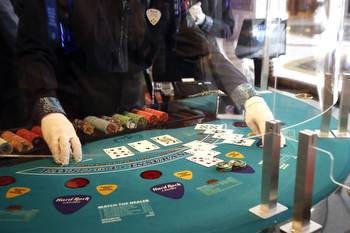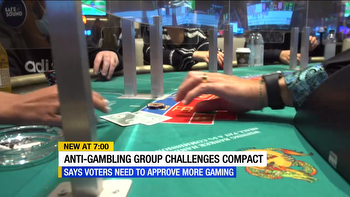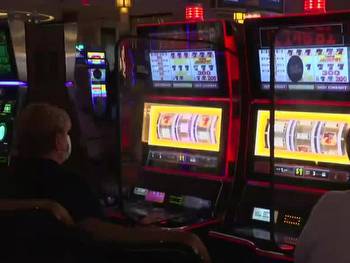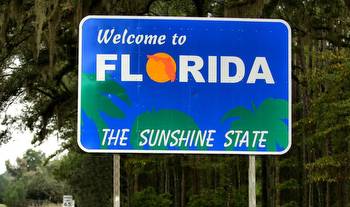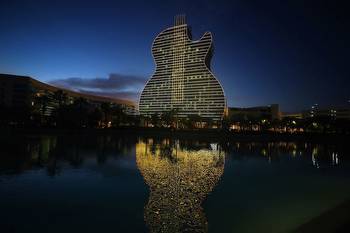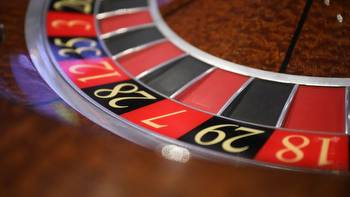South FL businessmen, No Casinos sue to strike down gambling expansion
two lawsuits fighting for control of sports betting in Florida’s new gambling compact, there’s now a third lawsuit seeking to invalidate the compact altogether.
A group of South Florida businessmen and their companies, along with the anti-gambling group No Casinos, filed suit in U.S. District Court in Washington, D.C., late Monday, arguing that the compact between the State of Florida and the Seminole Tribe of Florida is illegal at state and federal levels and that expanded gambling in Florida threatens communities.
They sued U.S. Department of Interior Secretary Deb Haaland, whose department includes the Bureau of Indian Affairs, which allowed the compact to move forward in mid-August without issuing an approval or a disapproval.
Here are some basics on the three lawsuits:
— Two South Florida pari-mutuels interested in hosting future sports betting sued Haaland in Washington, D.C., challenging the compact because it gives a 30-year monopoly over sports betting to the Seminole Tribe of Florida. They are aligned with a campaign backed by sports-betting titans FanDuel and DraftKings to legalize sports betting regardless of the tribe, by way of a constitutional amendment being pitched for the 2022 ballot.
— The same two pari-mutuels sued Gov. Ron DeSantis and Business and Professional Regulation Secretary Julie Imanuel Brown in Tallahassee for basically the same reason.
— The new lawsuit is entirely different. The South Florida businessmen are suing Haaland in Washington, D.C., attempting to ditch the compact altogether and prevent any expansion of gambling unless voters approve it first. No Casinos, which successfully pushed the anti-gambling constitutional amendment 3 in 2018, is backing this lawsuit.
In their court filings, the businessmen cite business interests in Broward and Dade counties and claim that expansion of casinos and other gambling activity in Florida will degrade quality of life and property values in their communities. They are Armando Codina, Jim Carr and Norman Braman.
“By allowing new forms of Class III gaming activities [including craps, roulette, mobile sports betting and more casinos] on and off Indian lands and in violation of Amendment 3’s voter approval requirement, the DOI [Department of of Interior] approval adversely impacts Plaintiffs’ properties and neighborhoods by, among other things, increasing neighborhood traffic, increasing neighborhood congestion, increasing criminal activity, reducing open spaces, and reducing their property values,” their complaint says, in part.
No Casinos, an organization led by John Sowinski to require voter control of gambling, wrote to the U.S. Department of Interior in July urging it to disapprove the compact then under its review. He argued the compact violates both federal and state laws, but the department allowed the compact to take effect without actually approving it.
Sowinski contends the compact violates federal Indian gaming law that prohibits tribal gaming on tribal land unless it is legal elsewhere in the state. In Florida, sports betting cannot be legal unless approved by voter referenda, he said in a statement issued in conjunction with the filing of the new lawsuit.
“This violates the Indian Gaming Regulatory Act (IGRA), the Unlawful Internet Gambling Enforcement Act (UIGEA), the Federal Wire Act, and Florida’s Amendment 3, which was approved by 72 percent of Florida voters in 2018,” Sowinski states.
“We are committed to ensuring that the law is followed, and that the exclusive right of Florida voters is respected.”
In mid-May, the Florida Legislature ratified the gambling compact negotiated in April between DeSantis and the Seminole Tribe. The 30-year contract would ensure the state would get $2.5-billion from the Tribe over the course of five years, which would be about $500 million each year. The market for sports betting alone in Florida is estimated at $7 billion, according to testimony at legislative hearings.
The compact provides for new casinos on and off tribal property, legalizes craps and roulette to be played in tribal casinos, and online sports betting statewide, starting no earlier than Oct. 15. Seminole Gaming spokesman Gary Bitner said the tribe has not announced a launch date.
Court records filed by the pari-mutuel facilities say the tribe indicated to them that sports betting would begin in mid-November.







